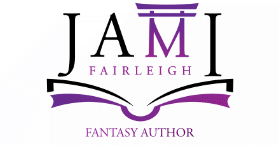
Tips for Writing Your Book’s Acknowledgements

One of the last steps of book production is writing your acknowledgements section. But why? Who? And most importantly, how?
First, deep breath.
Second, an acknowledgements section is not required. If the thought of writing one freaks you out, you could skip it, but come on.
You’re a writer!
And after all the work, words, and hours it took to transform your idea into a book, you have the chops to write this last piece, too.

Why Write an Acknowledgements Section
The acknowledgements section is your opportunity to express your thanks publicly. A terrific way to celebrate the people who provided help or support along your book’s journey.
For readers, it’s a tantalizing, behind-the-scenes look into how you created your book. It’s also an opportunity for you to give your readers a glimpse of who you are as a person.

Who Should You Acknowledge?
If you get stumped, try thinking about who provided you with emotional, moral, financial, academic, or technical support.
Personal supporters are anyone who provided emotional support or inspiration. This includes family members, friends, mentors, role models, coaches, and even pets.
In Oil and Dust, I mentioned my personal cheerleaders and someone who gave me the verbal kick-in-the-butt I needed in order to face my fears of finishing the project. In later books, I’ve thanked individual readers who have reached out or made a difference in my author journey.
Professional supporters could include agents, publishers, and groups and organizations that provided stipends, grants, or funding. Professional supporters can also include writing groups and your writing community. I like to include a list of “toolmakers”; the creators of the software I used to plot, draft, edit, and format my books.
Technical supporters usually include the people who had a direct influence over the shaping of your book. This means cowriters or critique partners in addition to editors, research assistants, and alpha or beta readers.
You could also mention the people who impacted the look and feel of your book, like illustrators, formatters, and your cover designer.

How to Write Your Acknowledgements
When I sit down to write my acknowledgements, I start by thinking about the book’s journey. This helps me pinpoint when and where people inspired, supported, and contributed to the crafting of the final manuscript. As a bonus, reviewing the book’s journey inspires my Author Notes section too!
Once I’ve created the list of who I want to thank, I don’t start writing my acknowledgements until I’m in a place of gratitude. Your acknowledgements will be more impactful if they are specific and sincere. Saying thanks is nice, but explaining why you’re grateful is more meaningful.

Does Tone Matter?
I’ve seen several theories about the tone of book acknowledgements. Some suggest writers should complement or match the tone of the story to avoid jarring the reader. Others argue the tone should bring balance to the reading experience, such as an uplifting voice after a particularly dark or bittersweet ending.
Either method is fine, or you may want to match how you express yourself in your newsletter, on social media, and potentially, in future works. Since the acknowledgements section is a chance for your readers to get to know you, your typical, conversational tone may work best.

Some traditional publishers put the acknowledgements section at the front, before the story. This seems odd to me; I don’t want to read about who helped make the story possible until I’ve read the story! I also don’t want to read spoilers (which can happen).
Instead, I prefer a short dedication in the book’s front matter, and the acknowledgements section in the back.
Let your creativity shine!
I enjoy reading acknowledgements and think authors should write them, but if you decide against them, that’s okay. It’s your book.
If you decide to include acknowledgements, consider having fun with them. At their heart, your acknowledgements are a personal thank you from you to the people who inspired and enabled you to write and finish your book.
So, go ahead and write your acknowledgements like a story. Include the inside joke or throw in the reference that only the recipient will understand.
However you choose to craft your acknowledgements section, who you choose to acknowledge (and how you write about them) will reveal a little of your personality and values. And as long as it’s heartfelt, there is no wrong way to express your gratitude.

Do you include acknowledgements in your books?
Header Photo by Freddy Castro on Unsplash
